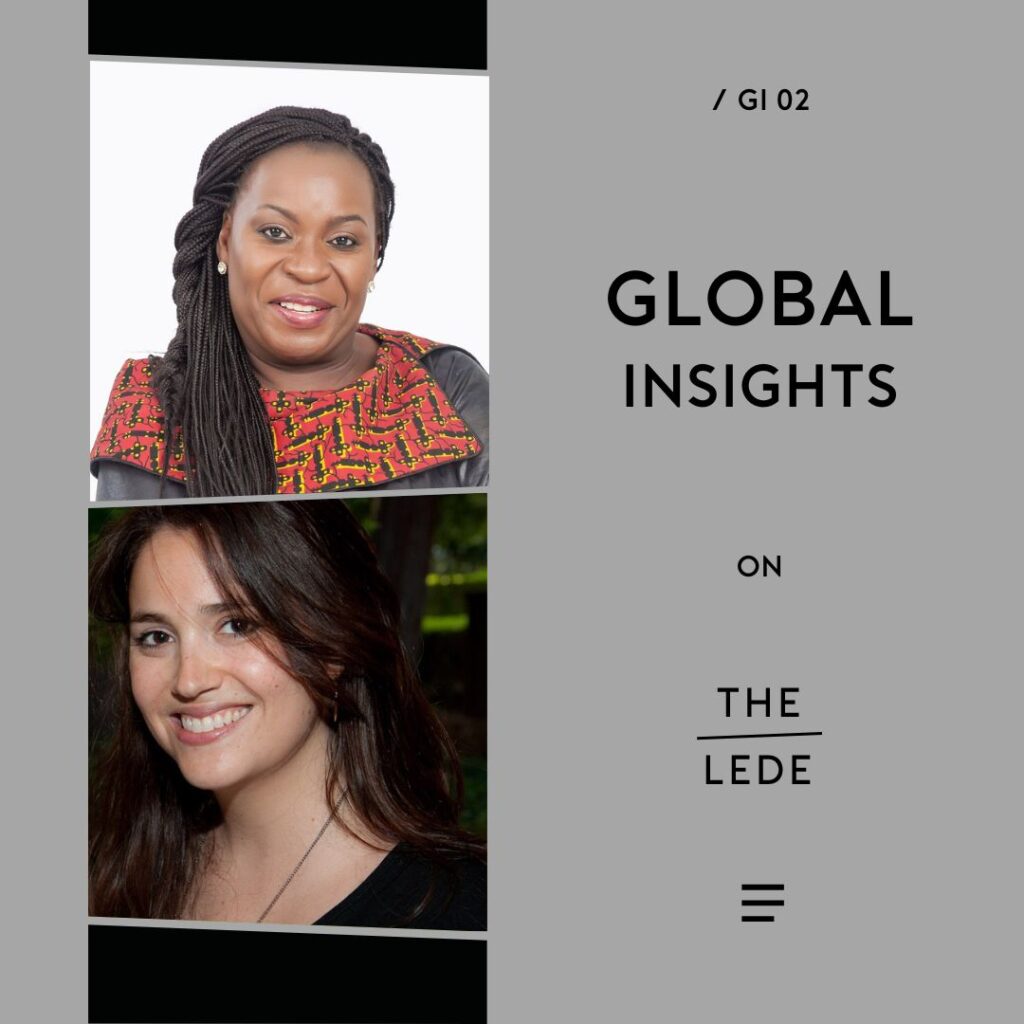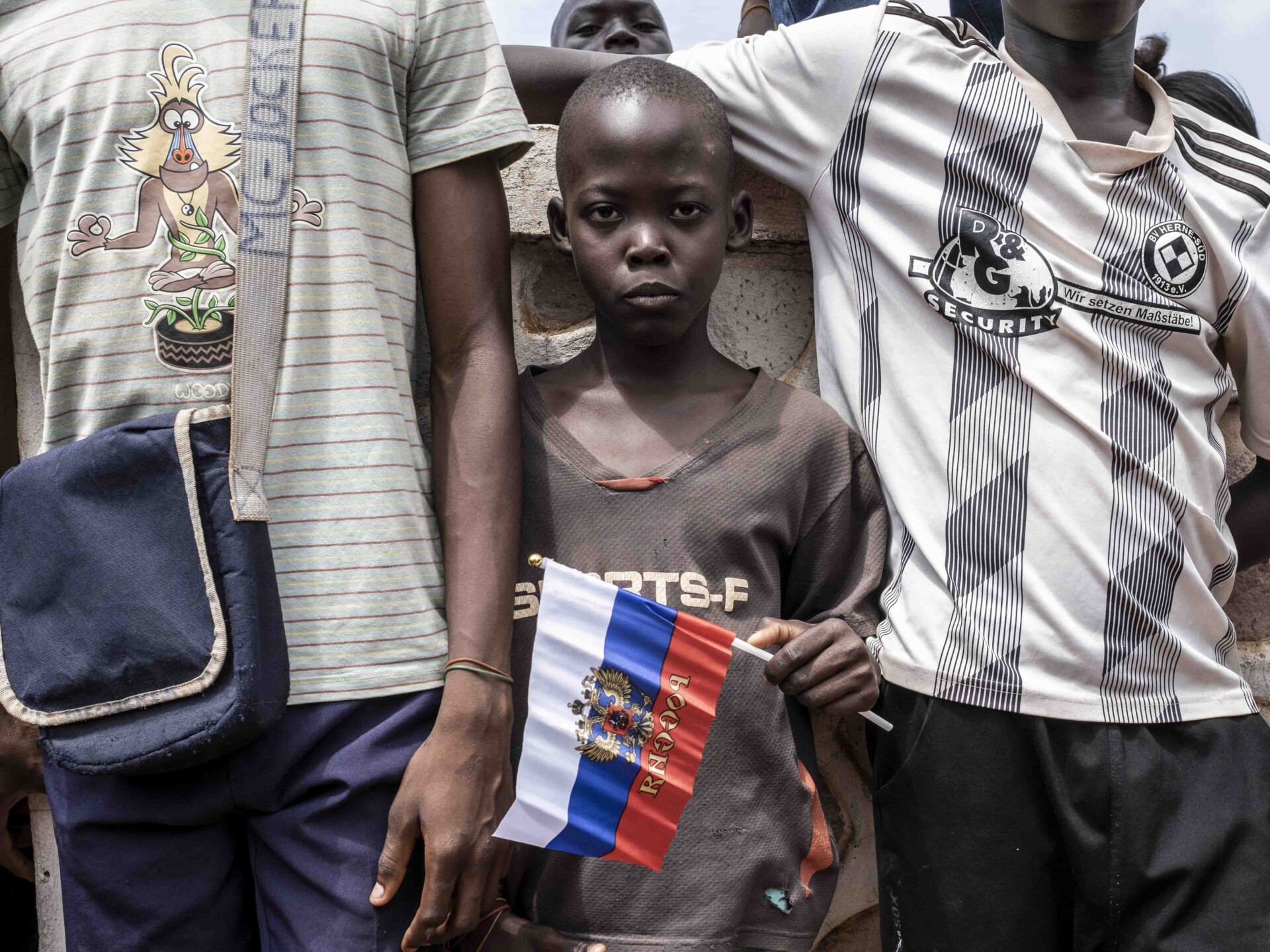Hosted by Kwangu Liwewe
Featuring Amie Ferris-Rotman
Produced by Finbar Anderson
Listen to and follow The Lede
Apple Podcasts | Spotify | Podbean
Russian influence in Africa was minimal during the two decades that followed the collapse of the Soviet Union, but that’s no longer the case, New Lines Global News Editor Amie Ferris-Rotman tells Kwangu Liwewe on Global Insights.
“Unlike the Brits, unlike the Americans, the Russians are really good at maintaining these relationships over decades, speaking the languages of the countries where they conduct foreign policy,” says Ferris-Rotman. “These friendships and relations have stayed intact, even though the Soviet Union is no more.”
“One of the biggest misconceptions about Putin is that he’s this master chess player, this strategist, and he really isn’t. He’s an opportunist.”

Russian President Vladimir Putin is trying to revive those old relationships, Ferris-Rotman explains. Nevertheless, she says, “Russia loves an opportunity. And one of the biggest misconceptions about Putin is that he’s this master chess player, this strategist, and he really isn’t. He’s an opportunist.”
The opportunity is about economics as much as politics, says Ferris-Rotman. “The countries that Russia is propping up, or helping, or interfering in their affairs at the moment have a lot of rare earth minerals,” she says. Russia is “a country that’s increasingly isolated from the West because of the war in Ukraine, and it’s got economic sanctions placed on it, and African countries offer unfettered access to riches, which is what Russia wants.”
Russia’s reentry into Africa is also influenced by the declining influence of the West, Ferris-Rotman says. “Where the West is failing or creating a power vacuum, Russia will usually try and step in.”
A degree of hypocrisy exists in Western countries criticizing Russia’s neocolonialist projects, Ferris-Rotman says, but that doesn’t mean such charges are completely baseless. “We’re really seeing Russia as a colonizer, and it’s playing out in Ukraine,” she says.
Much of Russia’s military presence is enforced by private military companies (PMCs), which means nothing good for the countries in which they operate. “PMCs can operate essentially without abiding by any rules whatsoever,” says Ferris-Rotman. “They can also do things which people do not know about. … They’re not accountable to anyone publicly, so they can do whatever they want, essentially.”
That’s not to say Russia is the most influential foreign power in Africa. “China’s soft power on the continent is far superior,” says Ferris-Rotman. “It will last a lot longer.”


